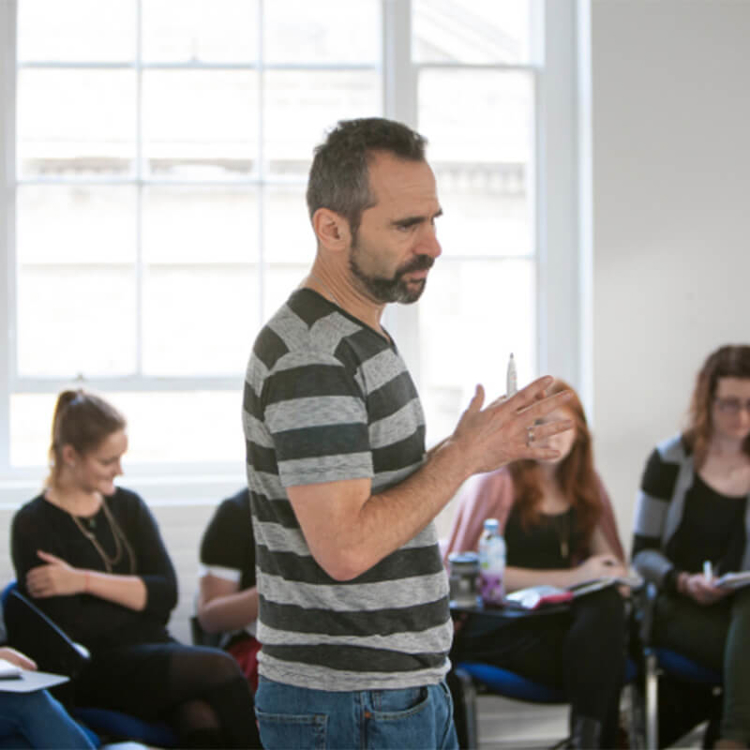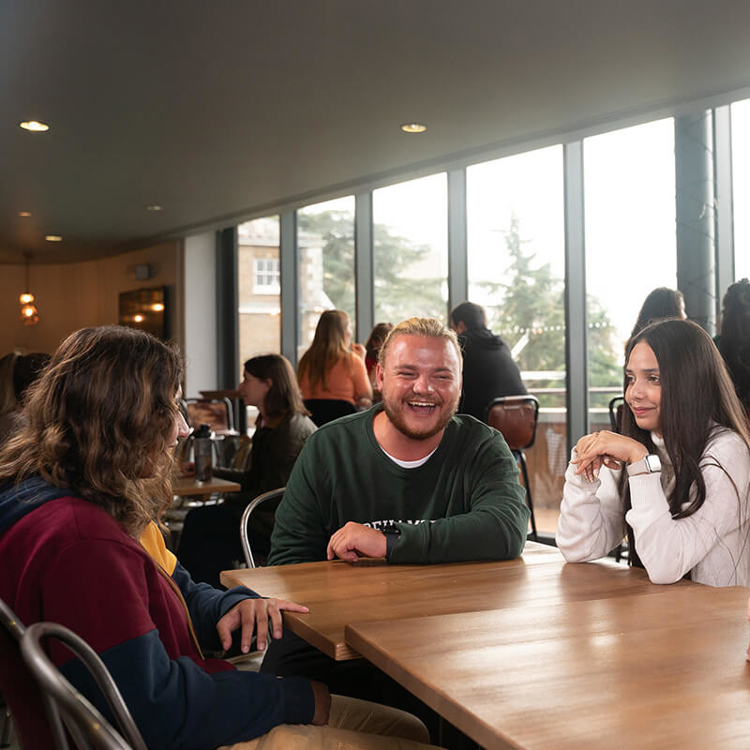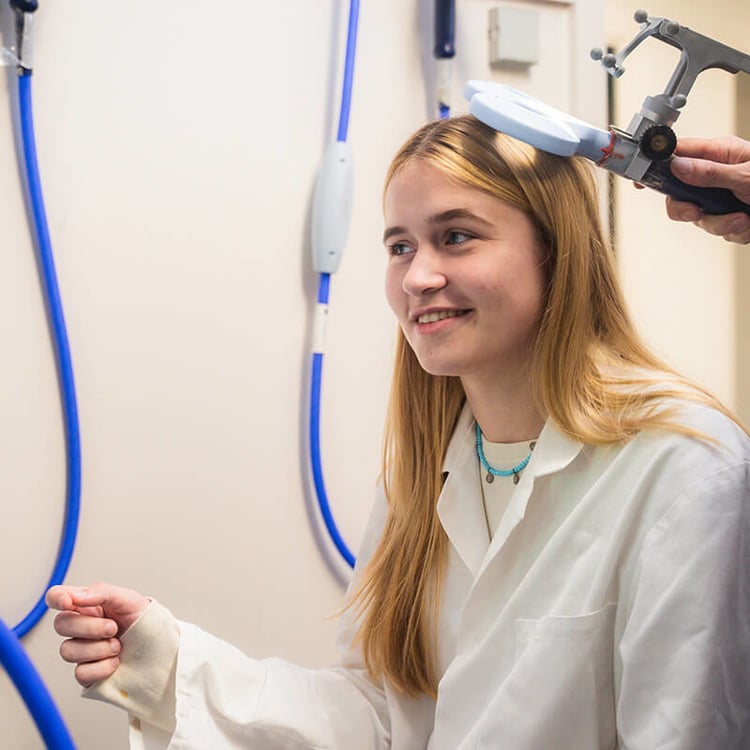Duration:
3 years (full-time)
6 years (part-time)
Number of credits:
PsychD: 120 credits at Level 7, plus 420 credits at Level 8 (Doctoral)
Start date(s):
September 2025
September 2026
This course gives you the professional training that leads to eligibility for registration as a counselling psychologist with the Health and Care Professions Council and chartered status with the British Psychological Society.
Did you know?
You will be taught by a team of experienced practitioners and trainers, including leading international figures in the field.
![]()
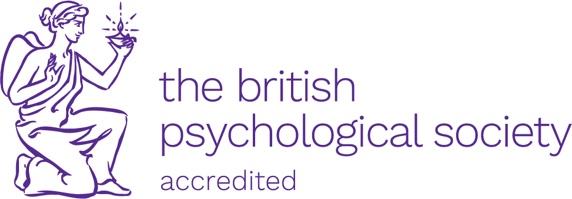
Modules

Your Curriculum
Study a programme at the leading edge of international developments in counselling psychology practice, research and theory.
Please note, as the course is undergoing a redesign and revalidation, modules and content may be subject to change.
This programme brings together contemporary understandings from person-centred psychodynamic and cognitive-behavioural models of therapy. There is a strong emphasis on your identity and employability as a practitioner psychologist, including skills in:
- assessment and formulation
- leadership
- service evaluation
- psychological testing
- qualitative and quantitative research methods
The programme attracts a diverse group of trainees who have gained relevant experience in fields such as counselling and psychotherapy, research and academia, and the NHS, and who are passionate about becoming counselling psychologists.
The course is based on a pluralistic relational philosophy that values diversity, and promotes individual empowerment and social change. This means that we respect and value a wide range of approaches to psychological intervention and research, view relationships as central to wellbeing, and seek to enable trainees to make a positive difference both at an individual and social level through their clinical and research work.
*The redesigned programme will continue to cover similar material to what is currently being taught and have a similar structure and it will be attuned to the contemporary mental health needs and provision aiming to train counselling psychologists to high standards of clinical work, research and employability. The new programme will be offered in a full-time and part-time mode, and it will again be accredited by the British Psychological Society and the Health and care Professions Council, leading to a professional qualification and registration with these two bodies upon completion. If you are shortlisted for an interview, the staff will invite you to a presentation with an overview of the new programme prior to your interview date. However, at this point it is not possible to provide more detail. Please use the existing programme structure as a guide and what is expected from applicants.
September 2024 entry: The deadline for applications is Thursday 29 February 2024 and that if selected for interviews, these will take place between mid-April and mid-May 2024.
Before submitting an application all candidates must read the full Programme Outline and entry requirements - full-time here, part-time here.
Please read our FAQs prior to applying.
To apply for this programme, applicants should click on the 'apply for this course' link and submit an online application via the 'Postgraduate taught programmes' tab.
Learning
As a traniee at Roehampton, your learning will take place across lectures and seminars, as well as supervised clinical placements.
In years one and two as a trainee, you will focus on gaining clinical experience working in person-centred and psychodynamic models of therapy respectively. In year three, you will have the option of gaining experience working in a cognitive-behavioural, integrative or pluralistic model. By the end of the programme, you will have completed a minimum requirement of 450 supervised client hours in a range of placement settings.
Starting in your second year, you will work towards the production of a doctoral portfolio to showcase and integrate your learning as a counselling psychologist, across both professional practice and research domains. The portfolio contains elements, such as research papers, that you will be encouraged to submit for publication, thus further enhancing your professional contribution and employability.
During your training, you will develop key transferable skills as a practitioner psychologist, in research, psychological testing, service evaluation, team working and leadership. Your development will be closely supported and monitored throughout the programme, using formative and summative assessment, involving clinical tutors and research supervisors.
Below are some of the common questions asked by potential students. If you have any additional questions, please email pg.information@roehampton.ac.uk
What are the programme’s entry requirements
The PsychD entry requirements can be found on our website.
Is there a closing date for applications?
Yes, this is indicated in the ‘Entry Requirements’ box on the Programme’s main webpage and is usually at the end of February (please disregard the standardised September postgraduate deadlines). All applications submitted before this date for the programme will be reviewed once the closing date has passed. Applications will be assessed against the programme’s entry requirements and shortlisted candidates will be invited for interview, normally in April-May.
Is there more than one point in the year when I can join the programme?
Unfortunately there is only one intake per year to the programme which is in September.
Can I speak to someone from the programme team about my questions or visit the University?
Due to the high volume of queries we receive regarding the programme we are unfortunately not able to offer individual consultations with prospective applicants. However we offer a number of open days over the course the academic year, normally in November, February and May, where prospective applicants can meet with a representative from the programme and ask questions. The open days are advertised and can be registered for via the programme’s main webpage.
What kind of work experience do I need to apply for the programme?
Applicants should demonstrate work experience in an emotionally demanding helper role that involves using counselling skills to provide face-to-face support to people experiencing psychological distress or mental health problems. This needs to be more in-depth than befriending, helpline work, shadowing or observing. The kind of work experience we generally recommend is a role which approximates as closely as possible the kind of work a trainee would do on a placement, providing appropriate level psychological interventions to people experiencing mental health difficulties under the supervision of a qualified practitioner, such as an assistant psychologist https://www.healthcareers.nhs.uk/explore-roles/psychological-therapies/roles/assistant-clinical-psychologist
Entry to the programme is competitive and most of our successful applicants have been working for several years in paid mental health roles, like assistant psychologists, psychological wellbeing practitioners or mental health support workers, building up relevant knowledge skills and experience in the field. Work experience doesn’t have to be paid or full time but the more experience someone has gained generally the better. Applicants often start off by working in voluntary roles in mental health gaining relevant knowledge and skills that provide building blocks to paid roles. This might include gaining volunteering experience with a mental health charity (e.g. https://listeningplace.org.uk/ or https://www.mind.org.uk) or asking NHS employers if they have any vacancies for honorary roles (i.e. unpaid) as an assistant psychologist/PWP as a way to gain relevant work experience and also show your commitment.
Beyond the type and amount of work experience someone has, ultimately what we’re interested in is what someone has learned from their work experience, how developed their capacity is to think psychologically about clinical work, and how ready they are to undertake the training programme, which does not always correlate clearly to amount or type of work experience.
It is also worth bearing in mind that the admissions process has two stages. The first stage involves assessing whether an applicant appears to have sufficient experience to be considered for interview, and whether they meet other pre-requisites, including having completed introduction training in counselling skills. The second stage then involves a fuller assessment of the candidates readiness to undertake the training at an interview, which focuses as much on what the candidate has learned and the depth of their understanding than on the experience they have gained per se.
Is prior work experience with children and adolescents considered appropriate and adequate to apply for the programme?
Work experience with children and adolescents is considered relevant though in principle not as relevant as working with adults. This is because the primary focus of the training is working with adults and a requirement for placements in the first two years of the programme. Beyond the requirements for placements in Year 1 and 2 (minimum of 100 hours in person-centred and psychodynamic), there is scope to work with children and adolescents. So while acceptable and potentially adequate, work experience with children and adolescents may not provide as good a preparation for starting the programme as experience working with adults.
Is it possible to undertake a placement where I currently work?
Undertaking a placement with an organisation where the trainee is already employed can be possible, assuming the placement meets all the usual criteria, but it requires a clear delineation of the trainee’s employed role, cases and supervision and their paid role, for example they must use the title ‘trainee counselling psychologist’ when working in their placement role. Once an applicant is made and accepts an offer on the programme they can begin liaising with our placements manager to explore further the feasibility of such a placement arrangement for them.
Placement work and supervision needs to be clearly delineated from other roles the trainee may have if they undertake placements within an organisation they work for. The organisation needs to have a framework set up to provide a placement to a counselling psychology trainee which we assess using set criteria. Trainees need to describe themselves in their work with clients in placements as ‘trainee counselling psychologists’ independent of any other roles or qualifications they may have. If these various requirements can be met it may be possible to set up a placement.
Are the placements trainees’ undertake on the programme paid?
Placements are not paid, though sometimes trainees will do a placement within a service where they are already working.
Do I need to complete prior counselling training before I can apply?
Yes, though this may be less important if an applicant has gained a lot of relevant work experience perhaps including on the job or in house training and skills development. In terms of counselling skills, any introductory course that covers counselling skills and theory and provides opportunities for practice would be suitable. Here are some examples:
- https://www.citystgeorges.ac.uk/prospective-students/courses/professional-development/counselling-skills-workshop
- https://www.regents.ac.uk/study/psychotherapy-psychology/certificate-psychotherapy-counselling
- https://www.metanoia.ac.uk/programmes/counselling/certificate-in-therapeutic-skills-and-studies/
Generally speaking the more comprehensive the course the better a preparation it provides. But if an applicant has gained a lot of relevant skills and training through work experience (e.g., working as an assistant psychologist for several years), we may not always require an additional counselling course, or a shorter one may be adequate. If someone has relatively less work experience there can be an added advantage to doing a more comprehensive counselling training.
Can I apply for the programme if I don’t have the Graduate Basis for Chartered (GBC) membership yet?
Graduate Basis for Chartered Membership (GBC) with the British Psychological Society (BPS) is an essential pre-requisite for enrolling on the counselling psychology training. If you are unsure whether your previous programme of study confers GBC, please check with your original programme.
Prospective applicants who have not completed a course of study in psychology that holds accreditation status with the BPS and confers GBC, but have completed another programme of study abroad (e.g., international applicants), must first apply to the BPS directly to establish whether they can be granted GBC on the basis of their existing qualifications. This must be done before applying for the PsychD programme for the application to be considered. If the prospective applicant is granted GBC by the BPS they must submit this evidence with their application.
Prospective applicants who have completed, or are currently completing, a course of study in psychology that holds accreditation status with the BPS as conferring eligibility for GBC upon successful completion can apply for the programme. If they don’t submit evidence of their GBC status with their application, they would be required to do before being able to enrol on the programme, as a condition of any offer.
You can find further information about the process of applying for GBC with the BPS on their website at https://www.bps.org.uk/graduate-membership-gmbpss
What if I’ve completed a BPS approved course, but don’t have GBC by the time the course starts?
We can make conditional offers to candidates who are still completing GBC conversion courses, but you would normally need to have completed this before the PsychD programme commences in order to meet the offer condition and enrol. If you have not received your conversion course award and been able to apply to the BPS for GBC, you may be able to enrol provided you can supply a letter from your course tutor confirming:
- you are on a BPS accredited conversion programme
- that you have passed the programme
- your provisional dissertation mark
- the date you will be granted your conversion course award
Do I still need GBC to apply if I have lots of other relevant experience?
Unfortunately, GBC is a basic prerequisite on all counselling psychology programmes (and other postgraduate psychology trainings, like clinical, forensic, educational etc). This is because the PsychD is considered the ‘second stage’ of a training to become a practitioner psychologist—the first stage being foundation studies in the core discipline and research methods through a BPS accredited undergraduate or conversion course. Therefore, if you are ‘dead set’ on becoming a counselling psychologist you would need to have GBC. However, if you are more interested in doctoral training, than becoming a counselling psychologist per se, you could consider a post-qualification doctorate in psychotherapy (e.g., https://www.metanoia.ac.uk/programmes/post-qualification/doctorate-in-psychotherapy-by-professional-studies-dpsych-prof/)
I'm currently finishing my undergraduate in psychology, would I be able to apply without my final grade?
Yes you can, but if you were made an offer of a place it would be conditional upon getting at 2:1 minimum (unless there is evidence of subsequent higher academic achievement, such as having a relevant master’s or doctorate, e.g. in psychology, social sciences or mental health).
Am I eligible for a loan, scholarship or funding?
The PsychD programme is eligible for a UK government doctoral loan https://www.gov.uk/doctoral-loan
General information about University scholarships can be found at: https://www.roehampton.ac.uk/student-support/financial-support-and-guidance/
Can I transfer into Year 2 of the programme or get accreditation of prior learning?
Unfortunately, direct entry into Year 2 of the programme is not possible. Successful applicants can be considered for accreditation of prior learning, but this is only possible for some of the modules from Year 1 and normally only applicable if an applicant has previously completed part of another accredited counselling psychology programme. In practice APL on our programme is quite rare as it requires direct equivalence between previously completed study and modules from Year 1 of our programme. This is explained in the Assessment of Prior Learning section of our programme details page.
What are the placement requirements at the start of the programme?
Year 1 placements need to provide opportunities for practicing person-centred therapy (minimum 100 hours). Supervision should be with some who has training/expertise in the PCT model. It doesn’t have to be with a counselling psychologists, though this is recommended, provided that the supervisor is registered with UKCP or accredited with BACP (BACP ‘registration’ is not sufficient) and has at least 3 years post qualification experience. In Year 2, trainees need to undertake psychodynamic placements and supervision and in Year 3 a CBT placement is recommended. All new placements undergo a screening process by the PsychD programme’s placement team to check it meets core requirements.
What are the requirements for personal therapy?
The requirement is for trainees to be in continuous personal therapy for the duration of the programme with a minimum of 35 hours per year. So that would be 105 for a full-time student. We permit part time students to do a minimum of 140 hours over 4 years. Personal therapists don't need to be counselling psychologists but must be registered with one of the main professional bodies such as UKCP. They also must have at least 3 years' post-qualification experience.
Do I need to submit a research proposal with my application?
There is no requirement for PsychD applicants to submit a research proposal with their application. However, within their 1,000 word personal statement, we ask candidates to provide an outline of their current research interests, how these could be developed into a doctoral research project, and how these align with current research activity in the School of Psychology’s Centre for Research in Psychological Wellbeing (CREW). PsychD applicants are also welcome to submit a separate research proposal with their application if they wish. This should be no more than 1,000 words and cover such areas as:
- Title of the research study
- Summary of the research topic and idea, with reference to relevant literature
- The research question and/or hypotheses to be investigated
- The expected contribution the study would make to the field
- The proposed study design, including the methodology and sample, and the rationale for choosing this approach
- Alignment to CREW research activity
- A brief, indictive bibliography
Candidates do not need identify or contact potential research supervisors as part of the application process. This only happens later in Year 1 of the programme.
What does someone do if they are not able to locate or include an example of a previous psychology research dissertation with their application?
They should instead include another sample of assessed written academic year from previous study in psychology and they would also be advised to include a research proposal, as outlined above.
What kind of references do I need to provide with my application?
We normally require two references: an academic one, ideally from someone who has supervised the applicant’s research work/dissertation; and a clinical/work experience one, from someone who has supervised the applicant’s practice. Generally speaking it is helpful for referees to comment on the applicant’s personal characteristics, academic or clinical ability and capacity to undertake psychological research/practice at doctoral level, based on their experience of working with/supervising them.
Do I need a master’s degree to be eligible to apply?
No, although many applicants have completed master’s level study.
If you are planning to do a master’s, there are no particular prerequisites for this and our general advice would be to choose one you feel will help you further develop and demonstrate the PsychD programme’s entry requirements.
The kind of masters that might be most valuable may also depend on the individual applicant’s current strengths and areas for development, which might be more clinically or academically focused (e.g., undertaking an empirical research project to improve research skills or a counselling course to develop practice skills and knowledge). Whatever course you choose it is important to do one you will find engaging and perform well in.
Is there an ideal kind of master’s conversion course to do?
This is unlikely to be a significant factor, but if you are considering different master’s conversion options, probably the most important consideration, whether distance learning or face to face, is to undertake one that provides a good level of teaching on psychological research methods, ideally including qualitative and quantitative, and which requires you to complete an empirical research dissertation. Other than that, if the master’s includes coverage of mental health/therapy related topics, that could be useful. However, it’s also important to choose a course that you personally find interesting as you’re more likely to engage and perform well.
Can I work while studying on the programme?
Full time trainees should only work a maximum of 6 hours per week outside of the programme requirements. So if a trainee needs to undertake more work than this alongside the programme, we advise taking the part time pathway.
What kind of time commitment does the programme involve?
Broadly speaking, the typical weekly commitment for full time students looks something like this, which equates to about 40 hours per week:
- 5 to 2 days per week - attending classes at University
- 1-2 days per week - attending practice placements and supervision
- 1 day per week - study time, completing personal therapy, assignments and research project
The weekly commitment for a part-time student looks something like this, which equates to 20-30 hours per week:
- 5 or 1 day per week - attending classes at University
- 1 day per week - attending practice placements and supervision
- 1 day per week - study time, completing personal therapy, assignments and research project
What does the programme timetable currently look like?
You can find some information about the full and part time timetables, as well as module descriptions, on our programme details page and the extract below.
Part-time mode
Year 1a (Wednesday currently)
#DCP020L021Y - Person-centred and Experiential Theory and Practice
#DCP020L022Y - Inclusion Ethics and Social Justice
#DCP040L031Y - Professional Practice and Development 1a
Year 1b (Friday currently)
#DCP020L023Y - Assessment Formulation and Clinical Presentations
~DCP060L024Y - Research in Counselling Psychology [level 7 variant of DCP060D025 for MSc exit award only]
+DCP060D025Y - Research in Counselling Psychology
#DCP020L032Y - Professional Practice and Development 1b
Year 2a (Wednesday currently)
+DCP360D060Y - Advanced Practice and Research [Psychodynamic Theory and Practice, Experiential Group, Professional Practice]
Year 2b (Thursday currently)
+DCP360D060Y - Advanced Practice and Research [Empirical Research Project, Advanced Competencies, Professional Practice]
Year 3a (Wednesday currently)
+DCP360D060Y - Advanced Practice and Research [Cognitive-behavioural Theory and Practice, Experiential Group, Professional Practice]
Year 3b (Thursday currently)
+DCP360D060Y - Advanced Practice and Research [Empirical Research Project, Advanced Competencies, Professional Practice]
Please note that details of the programme timetable may be subject to change.
Can you recommend any further reading about counselling psychology?
The following free online resource provides a useful detailed picture of the profession of counselling psychology:
- Cooper, M. (2009). Welcoming the Other: Actualising the humanistic ethic at the core of counselling psychology practice, Counselling Psychology Review, 24(3&4), 119-129, https:doi.10.53841/bpscpr.2009.24.3-4.119
- Davey, G. (Ed). (2011) Applied Psychology. Student Companion Site: Six Supplementary Chapters London: Wiley. Read Chapters 1 – 5.
The following additional costs are not included the fees for this programme. The figures provided below are approximate and subject to change, and therefore for guidance only:
- Personal Therapy: £40-70 per hourly session. Full time trainees will be required to complete a minimum of 35 hours per year over 3 years, i.e. £1,400 per year or £4,200 in total. Part time trainees will be required to complete a minimum of 35 hours per year over 4 years, i.e. £1,400 per year or £5,600 in total.
- Enhanced Disclosure and Barring Service (DBS) Check: £55 at enrolment, plus £13 per year for an automatic annual DBS update.
- Please note that in order to fulfil HCPC requirements even trainees with a current DBS may need to undertake a new check through the university.
- Professional indemnity insurance: £35-50
- BPS graduate membership: £155. This is a prerequisite before applying for the programme.
- BPS Division of Counselling Psychology in-training membership: £13 per year
- Placement supervision: £40-60 per session/hour. This is applicable only in placements that do not provide adequate supervision.
- Books and Printing Costs: Varies year on year. Some programme texts and journals are available via the University library.
- Accommodation, travel, and living costs: This is dependent on individual circumstances.
Careers
Graduates go on to work as art therapists in fields including healthcare, education, adult mental health and the third sector.
They work in multidisciplinary teams, collaborating with psychiatrists, psychologists and other mental health professionals.
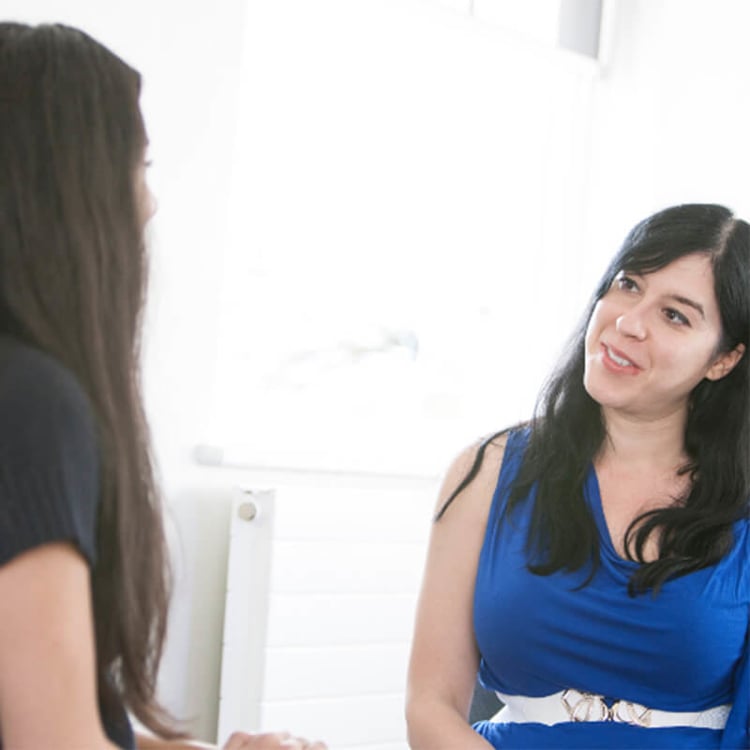
Open days
Get a real taste of our campus, community and what it’s like to study at Roehampton
Applying
UK postgraduate students apply through our direct application system.
Course subject to curriculum review and validation.
This course uses a gathered field approach to process applications. Find out more information on how we will process your application.
Application deadline: 7 February 2025.
Interview date(s): 28 April – 16 May 2025.
Specific entry requirements
The main round of interviews for the programme will take place in Spring. To be considered for these interviews, applicants should apply as soon as possible.
Please read our FAQs (noted on this course page) prior to applying.
Pre-requisites for application
- Graduate Basis for Chartered Membership (GBC) with the British Psychological Society. Successful applicants to the PsychD who are in the process of gaining GBC will be made an offer to study that is conditional on them gaining GBC.
- A minimum of a 2:1 or equivalent at undergraduate level. Applicants with a 2:2 may be considered if there is evidence of subsequent higher academic achievement, such as having a relevant master’s or doctorate (e.g. in psychology, social sciences or mental health).
- An International English Language Testing System (IELTS) score of at least 7 with no element below 6.5 for applicants for whom English is not their first language.
- Work experience in an emotionally demanding helper role that involves using counselling skills to provide face-to-face support to people experiencing psychological distress or mental health problems. This needs to be more in-depth than befriending, helpline work, shadowing or observing, for example, working as an assistant psychologist, wellbeing practitioner, support worker, counsellor or trained healthcare professional. Work experience can be gained in an employed or voluntary capacity but should consist of at least 6-12 months of continuous experience, prior to application, and working at least half a day per week in a relevant setting.
- A basic training in counselling skills and theory, for example, a short intensive certificate or diploma course. This may not be required if an applicant demonstrates significant relevant work experience, knowledge and in-house training.
Application
- Applicants must complete an online application, which includes providing evidence of the above pre-requisites and a 1000-word personal statement, in which they should include the following:
- Explain why they are interested in counselling psychology, as distinct from counselling, psychotherapy and clinical psychology, and why they want to train as a counselling psychologist
- Summarise work experience, training, skills and learning gained to date
- Reflect on how personal life experiences, including any experiences of mental health issues, have contributed to their intention to pursue this career
- Outline current research interests, how this aligns with current research activity in the School of Psychology’s Centre for Research in Psychological Wellbeing, and how this could be developed into a doctoral research project
- Show a standard of academic writing appropriate to doctoral level study
Selection criteria
- Applicants need to demonstrate the following to make a successful application:
- Reflective capacity, personal maturity and robustness to manage the emotional demands of the training
- A clear understanding of counselling psychology as a profession and rationale for completing the PsychD
- Knowledge, skills and experience necessary to begin working safely with vulnerable clients from the start of the programme
- A capacity to develop research at doctoral level, including evidence of original and creative thought, topic knowledge and applicable techniques for research
- Sufficient academic ability to support the production of doctoral work
- Evidence of the above will be assessed from the applicant’s written application and personal statement, and again at interview if shortlisted.
In line with our Admissions Policy, a satisfactory declaration of health is required to gain entry onto this programme. Applicants must also complete an Enhanced Disclosure and Barring Service (DBS) application. The enhanced DBS application currently costs £55 at enrolment plus £13 per year for an automatic annueal DBS update. These costs are subject to change.
General entry requirements
September 2025 entry tuition fees (UK)
| Level of study | Full-time | Part-time* |
| PsychD | £12,260 | £6,130 |
*Year 1 fee
We offer a wide range of scholarships and bursaries. See our financial support pages for UK students.
We also provide other ways to support the cost of living, including free buses and on-campus car parking, hardship support and some of the most affordable student accommodation and catering in London. Find out more about how we can support you.
Additional costs to consider
Students must undertake personal therapy—105 hours for full-time and 140 hours for part-time study—incurring a significant additional expense.
Some placements may require external supervision, typically 1–2 hours per month, which students must fund themselves.
Travel costs to and from placements should also be considered. While NHS placements cover compulsory training, charities may require students to pay for it.
In rare cases, students may need to fund their own enhanced DBS check.
International postgraduate students apply through our direct application system.
Course subject to curriculum review and validation.
Specific entry requirements
The main round of interviews for the programme will take place in Spring. To be considered for these interviews, applicants should apply as soon as possible.
Please read our FAQs (noted on this course page) prior to applying.
Pre-requisites for application
- Graduate Basis for Chartered Membership (GBC) with the British Psychological Society. Successful applicants to the PsychD who are in the process of gaining GBC will be made an offer to study that is conditional on them gaining GBC.
- A minimum of a 2:1 or equivalent at undergraduate level. Applicants with a 2:2 may be considered if there is evidence of subsequent higher academic achievement, such as having a relevant master’s or doctorate (e.g. in psychology, social sciences or mental health).
- An International English Language Testing System (IELTS) score of at least 7 with no element below 6.5 for applicants for whom English is not their first language.
- Work experience in an emotionally demanding helper role that involves using counselling skills to provide face-to-face support to people experiencing psychological distress or mental health problems. This needs to be more in-depth than befriending, helpline work, shadowing or observing, for example, working as an assistant psychologist, wellbeing practitioner, support worker, counsellor or trained healthcare professional. Work experience can be gained in an employed or voluntary capacity but should consist of at least 6-12 months of continuous experience, prior to application, and working at least half a day per week in a relevant setting.
- A basic training in counselling skills and theory, for example, a short intensive certificate or diploma course. This may not be required if an applicant demonstrates significant relevant work experience, knowledge and in-house training.
Application
- Applicants must complete an online application, which includes providing evidence of the above pre-requisites and a 1000-word personal statement, in which they should include the following:
- Explain why they are interested in counselling psychology, as distinct from counselling, psychotherapy and clinical psychology, and why they want to train as a counselling psychologist
- Summarise work experience, training, skills and learning gained to date
- Reflect on how personal life experiences, including any experiences of mental health issues, have contributed to their intention to pursue this career
- Outline current research interests, how this aligns with current research activity in the School of Psychology’s Centre for Research in Psychological Wellbeing, and how this could be developed into a doctoral research project
- Show a standard of academic writing appropriate to doctoral level study
Selection criteria
- Applicants need to demonstrate the following to make a successful application:
- Reflective capacity, personal maturity and robustness to manage the emotional demands of the training
- A clear understanding of counselling psychology as a profession and rationale for completing the PsychD
- Knowledge, skills and experience necessary to begin working safely with vulnerable clients from the start of the programme
- A capacity to develop research at doctoral level, including evidence of original and creative thought, topic knowledge and applicable techniques for research
- Sufficient academic ability to support the production of doctoral work
- Evidence of the above will be assessed from the applicant’s written application and personal statement, and again at interview if shortlisted.
In line with our Admissions Policy, a satisfactory declaration of health is required to gain entry onto this programme. Applicants must also complete an Enhanced Disclosure and Barring Service (DBS) application. The enhanced DBS application currently costs £55 at enrolment plus £13 per year for an automatic annueal DBS update. These costs are subject to change.
General entry requirements
September 2025 entry tuition fees (international)
| Level of study | Full-time | Part-time* |
| PsychD | £17,489 | £8,745 |
*Year 1 fee
We offer a wide range of scholarships and bursaries. See our financial support pages for international students.
We also provide other ways to support the cost of living, including free buses and on-campus car parking, hardship support and some of the most affordable student accommodation and catering in London. Find out more about how we can support you.
Additional costs to consider
Students must undertake personal therapy—105 hours for full-time and 140 hours for part-time study—incurring a significant additional expense.
Some placements may require external supervision, typically 1–2 hours per month, which students must fund themselves.
Travel costs to and from placements should also be considered. While NHS placements cover compulsory training, charities may require students to pay for it.
In rare cases, students may need to fund their own enhanced DBS check.


